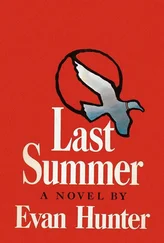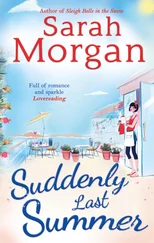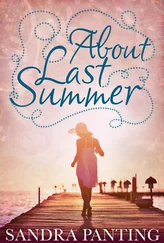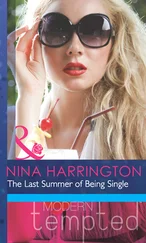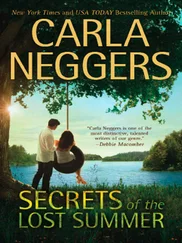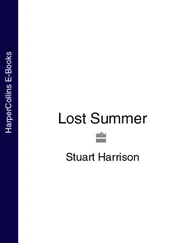The clicking of the projector continues from the cannabis to the cocaine. The drug market is largely controlled by the state’s security apparatus, the professor explains. It’s convenient for the government that ful is the national food since beans make people sleepy. He laughs at his own joke. And that’s why the government floods the market with cannabis. The street name is hashish. He tilts his head. Between us, he whispers in his Lebanese accent. I close my notebook and slip out. Down the long open hallway, around, down three flights of marble steps, to the other side of the building. Room 202. I’m early, always, and everyone else late. I take my seat by the door and bring out my thesis project, a film proposal. The title pays homage to a film by Jean Rouch and Edgar Morin. The filmmakers ask people on the street a single question one summer. Are you happy? I don’t yet know quite what my question is, but know I want to set it in the summer. In my journal I write about wanting change. I have a cousin in America who left Cairo abruptly one summer. Something happened to him, but nobody speaks about what. I imagine myself in America. I think about the last summer before Baba left. The last summer we were all together. Mama saying that all she knew after the palace coup was that the summer ended quickly. Maybe I could ask people if they are angry. People seem disheartened. We all have frustrations, grievances, but anger? I watch them at sidewalk coffee shops, drinking tea, smoking, watching TV, for hours. They sit quietly, their faces blank. I imagine if they harbored anger, they wouldn’t be so quiet. They wouldn’t sit for so long. Their faces, expressions, would hang differently. I wonder, if I ask them, what they will say. I imagine they might fall silent. Feel uneasy. But if I keep rolling into the silence, will they fill it by talking about their lives? Or will they just get angry that I am asking? People get scared when you ask them things on the street. For a writing assignment we are asked to approach passersby with the question of what they would like to see improved in their city. People walked away. They looked at me skeptically. They asked who was asking. They asked who was really asking. They said they couldn’t answer such questions. They put their hands up and shook their heads. They took steps backwards, sideways. They said they couldn’t speak about the city. They couldn’t speak about the country. Sorry. You know how it is. I don’t want to get in trouble. I don’t want any problems. So why are you asking exactly?
Habiba walks in and sits next to me. She flicks her hair to the right and shows me a dyed purple strand by her ear. The highest spiritual color, she says. I laugh and call it cute. She frowns. It’s not cute. Don’t use that word cute so freely. Not very much in this world is cute. I flip my page. She tells me it’s for karma and good energy, then peers at my papers and puts her finger to a paragraph and laughs. She recognizes herself, in a character named Dido. She looks at me. Then says, You should write a novel, not a screenplay. How? Do everything you want with the screenplay but in the novel. It’s easier. Less costly. You don’t have to produce it. We spend the class playing word games on the margins of my pages, zoning out the professor’s reading of Albert Hourani. He reads aloud from chapter five. Z broplem wiz z Arap world . H rolls her eyes at me. We have twenty-one chapters yet to go. On the first day of the semester he had told us there were a few things we needed to know. I am, from, the middle class , he said. My family had nothing. In the 1960s I studied hard at the university, and I was granted one of Nasser’s bursaries to go to the United Kingdom to complete my PhD. Without Nasser I would have never had the chance to travel. He said this as if standing atop a podium giving a public speech. His English is weak despite having studied in England and obtaining a PhD from Leeds. H and I laughed about this later as she mimicked him, sitting on a step after class, initiating the rites of passage to become friends. She rattled off a monologue mixing p ’s and b ’s, z for th . I am z lucky ones to have gone to z English school, I said. Then laughed, trying to earn her laughter too. Her reaction was fierce. The occupation was the worst for us. They were the dark ages. They took us back decades. My education undermined my identity. It broke my character. I should be furious that the British school even exists. I shouldn’t even joke about it. She paused to catch a quick breath. I hesitated and didn’t say anything but realized how much I liked her. Wanted to be her? We sat under the shade of a flame tree. She asked about my film. She talked to me about her major, physics, and then of her interest in artificial borders. She didn’t buy anything made in Israel or America. Didn’t drink coffee because the money benefits Israel. Didn’t wear certain kinds of shoes because the soles are made in Israel. Even the plastic cups in the cafeteria, they benefit Israel. Did you know? She didn’t use the term Middle East because it is a creation of the British. To use it is to remain colonized. I used Middle East all the time. I nodded and made a mental note to be careful.
—
I cross the paved courtyard towards the library. It looks like a giant slab of concrete with slim glass shafts. None of them open. The only fresh air into the building comes from the door. When I started university, one of the librarians told me it is because of Baba and his friends the new library is built this way. They used to throw books out of windows as students. I looked at the lady as she told me the story, not sure if I should believe her. She was wearing a dress with a lace collar and had on black sandals. Her body was soft. Her thick glasses were attached to a chain that sat on her shoulders and draped around her neck. On her dress I spotted a stain.
I sign out for my video equipment from the library’s AV room. People watch me. There are only three film majors, and we are all, always, watched. I exit the campus. Passersby stare. The only people who are allowed to film on the streets are the TV. They work at the Egyptian Radio and Television Union. If you work there, you are also the TV . You are also, maybe, someone with ties to the surveillance state. Someone it might be better to stay away from. I cross. On the old campus I go to the walkway between the basketball and tennis courts. The floor is paved with pink and yellow hexagonal tiles. I step only on the yellow ones. One step. Pause. One step. Pause. Sideways step. At the end of my path is the science building. I walk up the five steps at the entrance and set my tripod to the side. The university cameras are old, batteries last fewer than twenty minutes before going out. I look for a power supply. A guard approaches me. He shakes his head. You can’t set up here. But I’m on assignment. Sorry. But my professor asked me to. Sorry. But I’ll fail if you don’t let me. It’s against the rules. Please. We can’t allow it. But I have permission. Show me your permission. Here.
You can’t be?
I look at him. He peers as if into my face, through it, eyes wide. His silence like a gasp. He had known Baba. He sets up my power. Asks if I need anything. What a great pleasure to meet you. Your Baba was a great man. If ever you need anything. Anything at all. I adjust the camera. I hit record.
—
The first sit-in I witnessed was eight months ago, last winter. A silent sit-in, candlelit. It was the first political act on campus. University guards had hovered in the distance and then come closer, but they seemed unsure what to do. I also watched from afar. No one would talk about it at first except in whispers. H called it the thing. Then the government daily Al-Ahram ran a piece. Accompanying pictures showed three young men in black T-shirts, leather straps on their wrists, one of them with dreadlocks. It went: The American University encourages disobedience. It’s the nesting ground for a new and dangerous movement. They take drugs and engage in sexual acts. They worship the devil. They practice homosexuality. They might have AIDS. The sit-ins are part of a larger movement of disobedience. They believe in anarchy. A Nirvana album cover runs alongside. Suddenly everyone is talking about it. The journalist is campaigning to get the university shut down. H calls on the home phone one day soon afterwards to say we are in for excitement. She has done some research. The same journalist wrote a piece a few years ago about young rockers. He described them as atheists. Then one night, without warning, the police had spread across the country banging down doors, dragging more than a hundred young men from their bedrooms in the middle of the night. Nobody knew where they were, if they would resurface. Parents searched and asked in vain. Lawyers were told to keep away. Ninety-seven days later they showed up, all of them, knocking on the doors of their homes. They wouldn’t speak about what happened. Nobody dared to ask. Scars peered from necklines and sleeves.
Читать дальше
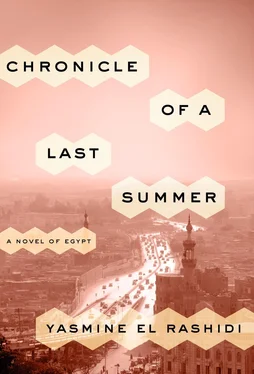
![Маргарет Миллар - Rose's Last Summer [= The Lively Corpse]](/books/384369/margaret-millar-rose-s-last-summer-the-lively-c-thumb.webp)
